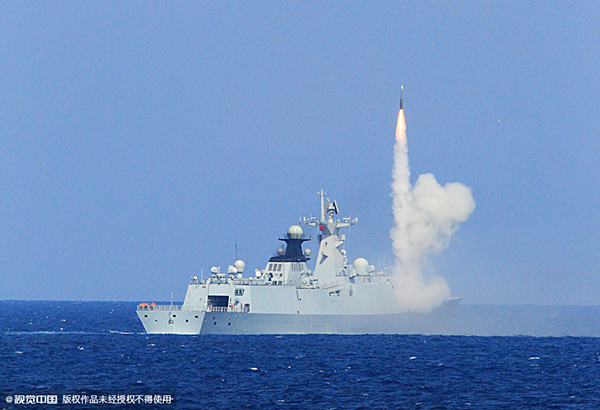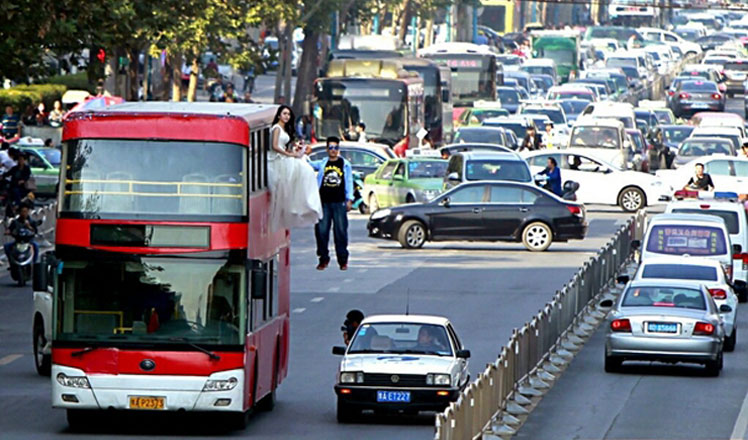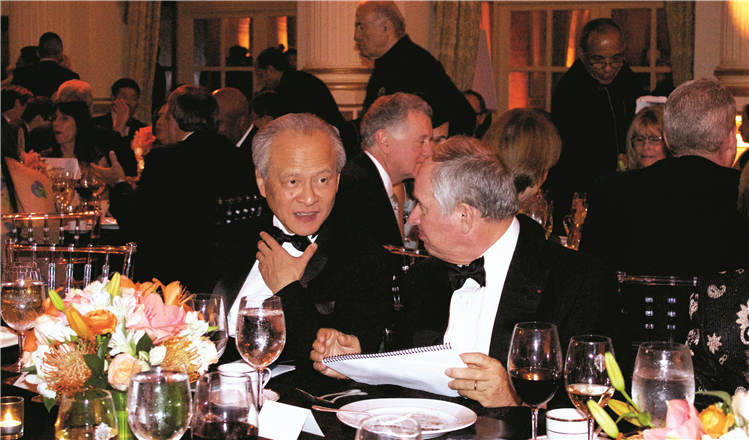Joint drills with ASEAN proposed
Updated: 2015-10-17 10:20
By Zhang Yunbi(China Daily)
|
||||||||
 |
|
Members of Chinese navy conduct a live-fire drill, with excise involving missiles and torpedoes, in South China Sea, July 28, 2015. [Photo/CFP] |
State Councilor and Minister of National Defense Chang Wanquan said on Friday that China is willing to hold a joint drill with ASEAN countries to better fulfill the Code for Unplanned Encounters at Sea, a major initiative that analysts said will help avoid potential miscalculations on the South China Sea.
Chang made the announcement while chairing an informal meeting of the Chinese and ASEAN defense ministers. Most of them are likely to attend the sixth Xiangshan Forum over the weekend in Beijing, a high-level annual defense seminar hosted by China to focus on Asia-Pacific security cooperation.
Some signs of tension clouded the South China Sea earlier this year, but China and members of the Association of Southeast Asian Nations are experiencing their best economic ties ever. Trade between them last year reached a record $480 billion, up 8.23 percent year-on-year.
On Friday, Chang set forth a five-point proposal to boost China-ASEAN defense cooperation, and he said that "disputes should be properly tackled and risks should be managed and controlled".
"In order to address common risks and challenges, China is willing to hold a joint drill with ASEAN countries regarding the Code for Unplanned Encounters at Sea and a joint drill regarding maritime search and rescue and disaster relief," Chang said.
In April last year, members of the Western Pacific Naval Symposium-including China, the United States and the majority of the ASEAN countries-witnessed the adoption of the code, which aims to head off accidents and miscommunication at sea to reduce the possibility of conflicts.
To better implement the code, the navies of China and the US drilled together in the eastern Pacific in August last year.
Liu Lin, associate research fellow of the Department of Foreign Military Studies at the PLA Academy of Military Science, said that the two drill sone involving the code for unplanned encounters and the other on humanitarian relief missions - covered cooperation of high and low sensitivity, respectively.
"This shows China's sincerity in settling the disputes properly, and the initiatives are very feasible. ... The Code will instruct the encountering navies to use widely accepted codes of communication, and there are also rules set for the accidental encounter of warships," Liu said.
Zhang Tuosheng, director of the Research Department at the China Foundation for International and Strategic Studies, said he believes that the ASEAN members' ministers will support the adoption of the proposals.
In a Friday speech at a welcoming dinner of the Xiangshan Forum, Cambodian Prime Minister Hun Sen suggested peaceful settlement of disputes in the region and said that "easier things should be done first, in order to build trust".
zhangyunbi@chinadaily.com.cn
- EU offers Turkey cash, closer ties for migration help
- ROK, Japan to hold defense ministers' talks next week
- 5 countries elected as non-permanent members of UN Security Council
- Obama slows pace of US troop withdrawal in Afghanistan
- Democratic rivals back Clinton on emails
- Myanmar gov't signs ceasefire accord with armed groups

 Trump card
Trump card
 Shaolin monks display kung fu skills in London
Shaolin monks display kung fu skills in London
 'Newlyweds' are 'floating' on air in Zhengzhou
'Newlyweds' are 'floating' on air in Zhengzhou
 Buckingham Palace prepares for Xi's visit
Buckingham Palace prepares for Xi's visit
 Shanghai Fashion Week: We COUTURE
Shanghai Fashion Week: We COUTURE
 World's top 10 innovative economies
World's top 10 innovative economies
 Cui: China, US should share global vision
Cui: China, US should share global vision
 Speaking Mandarin attracts Chinese homebuyers in the US
Speaking Mandarin attracts Chinese homebuyers in the US
Most Viewed
Editor's Picks

|

|

|

|

|

|
Today's Top News
Tu first Chinese to win Nobel Prize in Medicine
Huntsman says Sino-US relationship needs common goals
Xi pledges $2 billion to help developing countries
Young people from US look forward to Xi's state visit: Survey
US to accept more refugees than planned
Li calls on State-owned firms to tap more global markets
Apple's iOS App Store suffers first major attack
Japan enacts new security laws to overturn postwar pacifism
US Weekly

|

|







